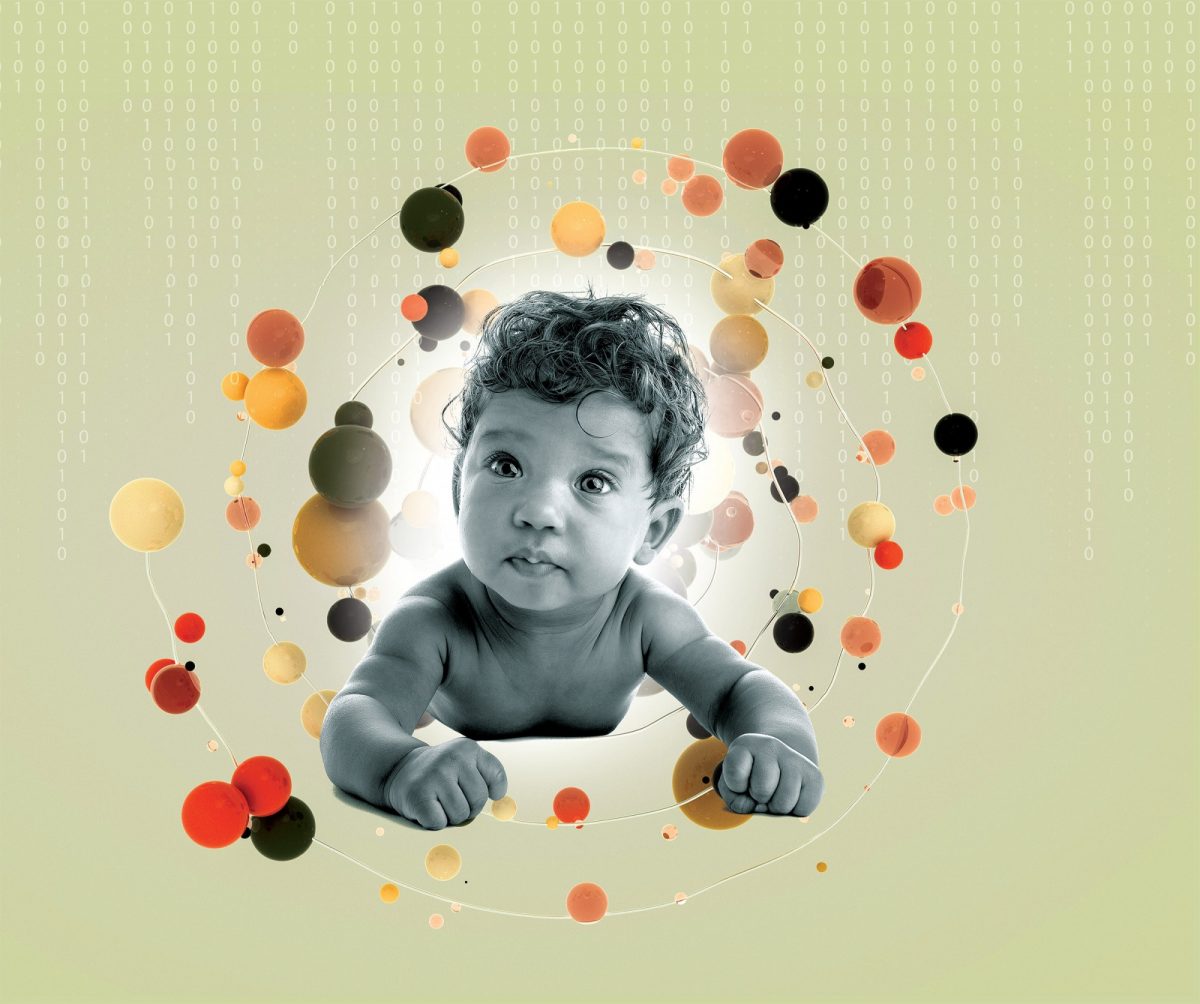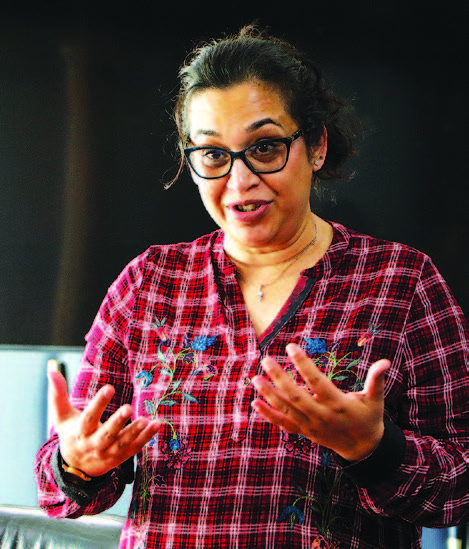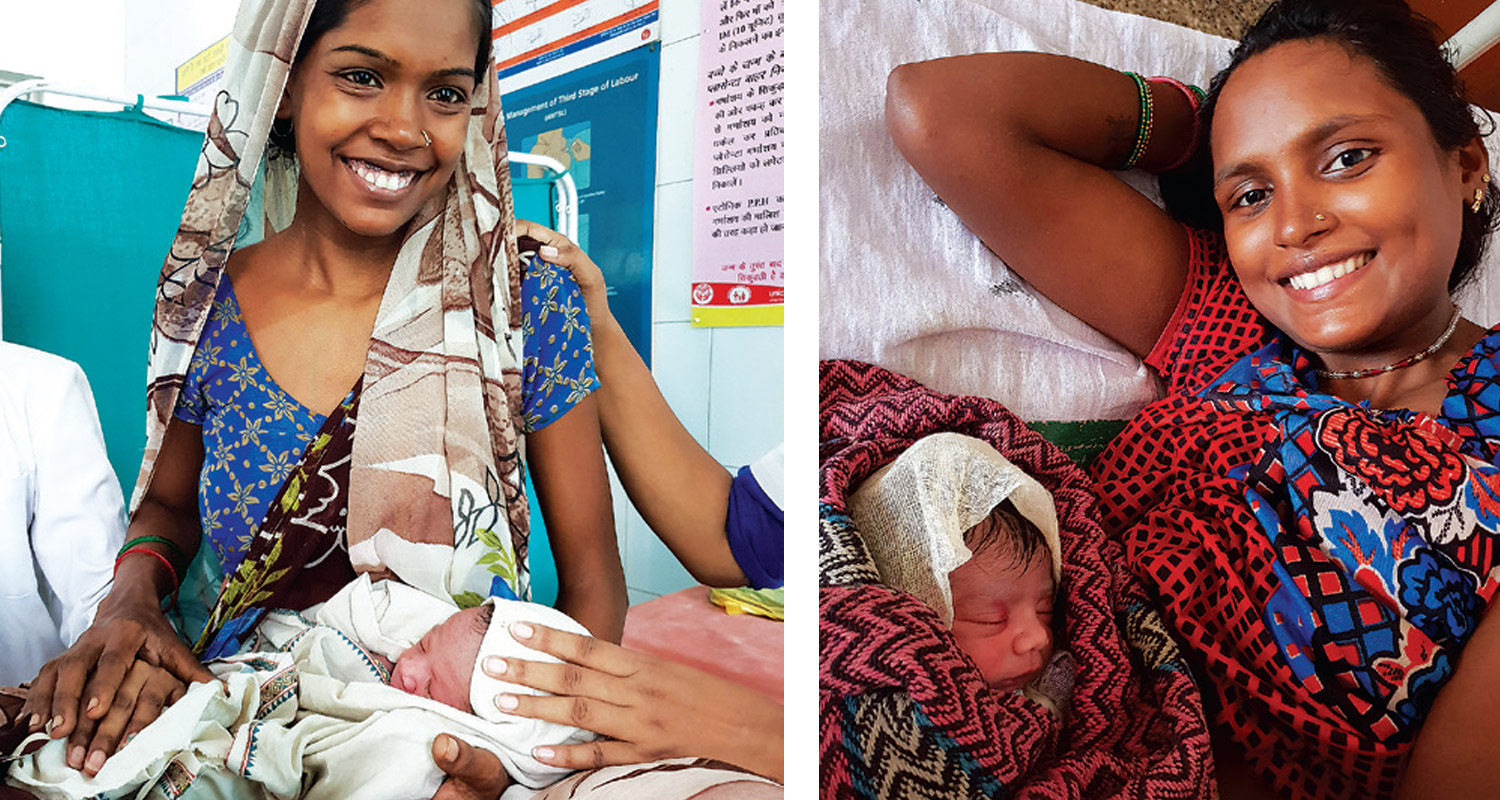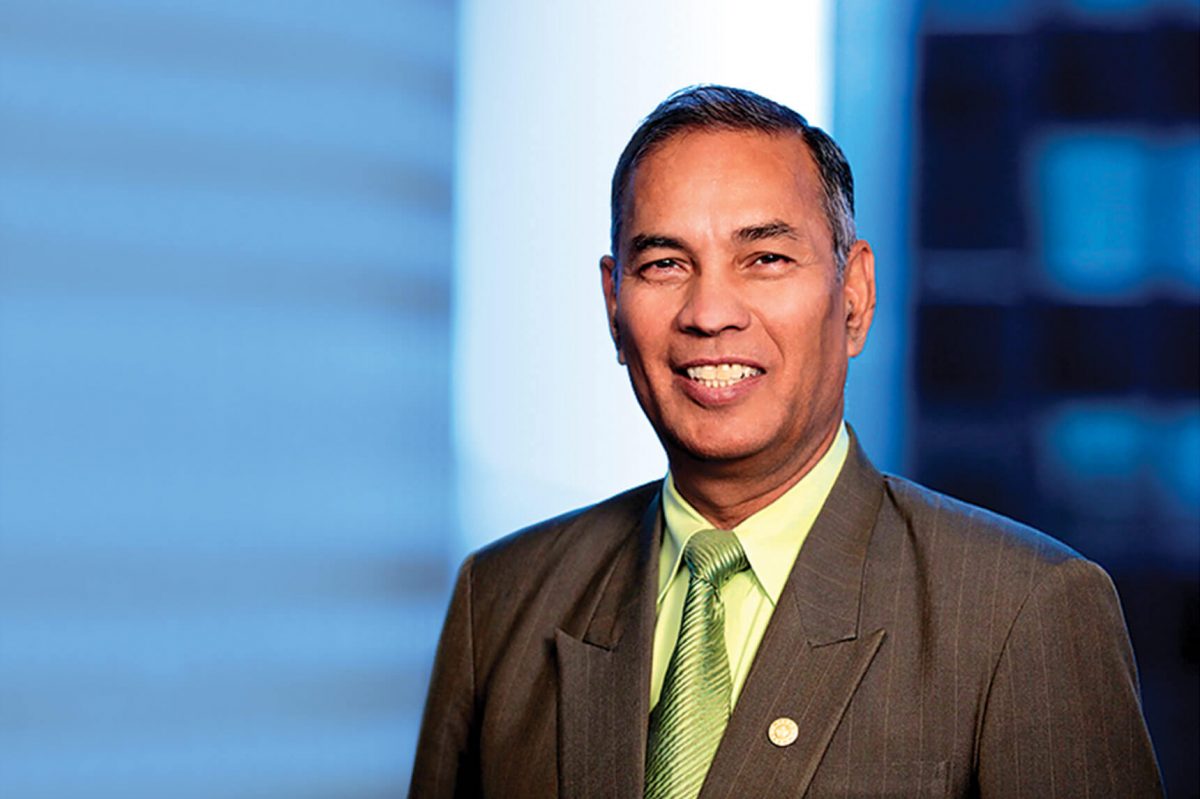
Saving lives with data
Women in rural northern India must clear a long series of hurdles to give birth safely, including finding a health centre with competent nurses and medication that has access to specialists if something goes wrong. University of Manitoba researcher Dr. Vasanthakumar Namasivayam is helping lower those hurdles, one by one. “It’s more exciting than overwhelming.” He leads a technical support unit embedded in the Uttar Pradesh state government that analyzes data to quickly identify and fix barriers to maternal and child health.
Dr. Vasanthakumar is one of many highly trained, high-energy team members of the UM’s Institute for Global Public Health (IGPH). They love their work because they can see the results.

Parinita Bhattacharjee presenting to Ugandan delegates on a learning visit to Kenya, facilitated by UM.
“Our infant mortality rate was reduced by 9.4 percentage points over five years and our maternal mortality rate was reduced by 19 percentage points over two years,” Vasanthakumar says. “We saved 300,000 children.”
A continent away, a veteran of the institute’s ground-breaking HIV prevention work in India now collaborates with government and community groups in Kenya that quickly adapted to the COVID pandemic by delivering HIV home test kits and condoms by motorcycle.
“Our infant mortality rate was reduced by 9.4 percentage points over five years and our maternal mortality rate was reduced by 19 percentage points over two years. We saved 300,000 children.”
“What was so exciting was the innovation and resilience,” says Parinita Bhattacharjee, the institute’s director of program delivery, who also supports work in India and Nigeria.
Dessalegn Melesse, meanwhile, is starting up a $1-million project funded by the Bill & Melinda Gates Foundation in his home country of Ethiopia. Originally from a small village where few had the opportunity to attend university, he co-authored a paper on the global epidemiology of C-section use that led to changes around the world while he was still an IGPH student.
“Few institutions give such opportunities for students. It’s a unique place.”
All three researchers hold part-time UM assistant professor appointments in the Rady Faculty of Health Sciences that allow them to work and usually live overseas close to their long-term research partners.
“It’s not your objective to shine as a technical support partner,” explains Bhattacharjee. Limelight is for the community and government partners whose questions UM researchers are helping answer.
Health planners in Uttar Pradesh used to think that pregnant women needed to be persuaded to visit community health centres until research showed the women were just having trouble getting there.
“We were searching for the wrong solutions,” Dr. Vasanthakumar says.
By adding pre-birth care to the childhood immunizations already offered on Village Health and Nutrition Days, Uttar Pradesh made prenatal care almost universal. Vasanthakumar’s technical support unit, also supported by the Bill & Melinda Gates Foundation, then added nurse mentors to help local nurses improve their skills delivering babies and identifying complications. Oxytocin began to be administered more consistently to prevent women from hemorrhaging after giving birth but when complications arose, the public health system had few specialists to manage them. So Vasanthakumar’s team recommended changing the recruitment rules to lure more than 1,000 specialists away from urban private clinics to the rural public clinics where they’re needed most.
The pandemic may have set back progress on newborn and maternal mortality because health workers were diverted to delivering COVID-19 vaccines, Vasanthakumar says. However, the upside was that people who visited the community health centres to get vaccinated will now see them as a place to go for their own health needs.
Virtual DJ nights on Facebook Live and online counselling were other innovations the Kenyan peer support workers Bhattacharjee works with quickly put in place to replace the physical meeting in bars where they did HIV outreach pre-pandemic. Isolation magnified anxiety and depression in a country where gay sex is illegal and families are often hostile.
“Few institutions give such opportunities for students. It’s a unique place.— It’s the kind of work I believe in.”
The community groups quickly co-authored a research paper with Bhattacharjee to share their ideas while the COVID pandemic was still in its first year.
IGPH values this kind of creativity, such as when Elsabé du Plessis gave adolescents in Tanzania tablets to privately record their answers to survey questions about reproductive health during her postdoctoral work. Or when PhD student Leigh McClarty used the Equiplot tool developed for global health to help tailor services for Manitobans with HIV.
Both stuck around after those projects ended to continue research with the institute. “They keep hiring people I want to work with,” laughs research associate du Plessis, who did her postdoctoral work with the institute’s Dr. Ties Boerma, former director of health statistics for the World Health Organization and now Canada Research Chair in Population and Global Health at UM.
McClarty hopes more of the academic world will catch up with the institute’s focus on service delivery. “It’s the kind of work I believe in.”

Photos provided by India Health Action Trust.
What’s so special?
Researcher accountability through a Program Science approach:
Community groups and governments decide which health problems they need solved, then the institute uses data to analyze what needs to be done, designs and implements new programs and scales them up over large populations if they’re proven to work. Government buy-in from the start means government data is available, reducing time spent on research surveys.
“We’re held accountable for results, even if we’re not necessarily paying for the interventions,” institute executive director Dr. James Blanchard explained during a recent online event.
Equity as a core principle:
IGPH is known for its research with sex workers, injection drug users, men who have sex with men and lower-caste women. People who are shunned by society face deadly health risks so focusing on their needs has the greatest impact.
“If you don’t do that, pressure is going to drive a lot of the investments into the majority population,” Blanchard says.
Long-term partnerships:
Long before the Centre for Global Public Health (the original name for the institute) was established in 2008, the groundwork was laid by innovators Dr. Allan Ronald, Dr. Frank Plummer and Dr. Stephen Moses. UM infectious disease researchers have worked in Kenya for 40 years. The institute’s graduate students, postdoctoral fellows and research associates are the third generation of researchers relying on the trusting relationships their mentors built.
Learn about how the UM global public health research partnership contributes to saving mothers and newborns in India
Watch the Café Scientifique discussion on “Achieving the UN’s Sustainable Development Goals” (Oct 20, 2021)
ResearchLIFE
ResearchLIFE highlights the quest for knowledge that artists, engineers, scholars, scientists and students at UM explore every day.
Learn more about ResearchLIFE











